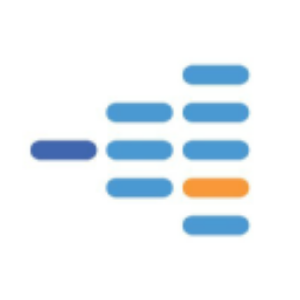Lineage Announces Research Collaboration With William Demant Invest to Develop ReSonance™ (ANP1) for Hearing Loss
- Three-year term intended to advance preclinical development of ReSonance
-
Up to
$12 million
The parties will jointly advance Lineage’s auditory neuronal cell transplant, ReSonance (ANP1), for the treatment of hearing loss. The multi-year research collaboration covers preclinical development activities, including cell manufacturing, proof-of-concept studies, translational/functional models, delivery development, outcome measures, regulatory strategy, and market analysis, to support a potential IND/CTA filing. WDI will fund up to
“ReSonance is our first internally-developed cell transplant program and highlights the efficiency and breadth of our technology platform. Over a short period of time and with a modest initial, incremental investment, we advanced the ANP1 product concept through successful manufacture of the desired cell type, generated new intellectual property, and advanced into initial preclinical testing. With this research contribution from WDI, which has a strong interest in hearing healthcare, we are taking the next step in the development of this exciting product candidate. This partnership will allow us to integrate the hearing loss research expertise of Eriksholm Research Centre with the manufacturing and cell transplant expertise of the Lineage team to explore the potential of a differentiated cell transplant, and position this therapy for initial clinical development,” stated Brian Culley, Lineage CEO.
According to the World Health Organization (WHO), nearly 2.5 billion people are expected to experience some degree of hearing loss by 2025, ranging from mild to moderate to profound. In severe-to-profound cases, the condition may involve loss of auditory nerve cells, potentially leading to auditory neuropathy and significant hearing impairment.
Hearing relies on a series of steps that convert sound waves in the air into electrical signals, which are then relayed by auditory nerve cells to the brain. Auditory neuropathy is a challenging hearing disorder in which the auditory nerve cells are damaged or lost, meaning that the communication pathway from the ear to the brain is disrupted. Currently, auditory neuropathy remains a significant challenge in audiology, and treatment options are limited. However, one treatment approach is cell-based therapy, which aims to replace lost or damaged auditory nerve cells. By repopulating the cochlea with functional, transplanted auditory neurons, this approach may restore hearing and enhance the effectiveness of a cochlear implant in certain individuals with severe-to-profound hearing loss.
About William Demant Invest
William Demant Invest is an evergreen investor and the holding company for William Demant Foundation’s investment activities, focusing on investments in listed companies. The current market value for all companies in the portfolio is around
About Eriksholm Research Centre
Eriksholm Research Centre is part of Oticon A/S, a world leader in hearing healthcare and part of the Demant A/S group of companies. Eriksholm is committed to making audiological discoveries with the potential to significantly enhance end-user benefits in hearing healthcare. Eriksholm engages in close collaborations with world leading academic research institutions. By bringing experts together, Eriksholm is able to create mutually beneficial research synergies and open up new lines of inquiry in the broader research community.
About Lineage Cell Therapeutics, Inc.
Lineage Cell Therapeutics is a clinical-stage biotechnology company developing novel, “off-the-shelf” cell therapies to address unmet medical needs. Lineage’s programs are based on its proprietary cell-based technology platform and associated development and manufacturing capabilities. From this platform, Lineage designs, develops, manufactures, and tests specialized human cells with anatomical and physiological functions similar or identical to cells found naturally in the human body. These cells are created by applying directed differentiation protocols to established, well-characterized, and self-renewing pluripotent cell lines. These protocols generate cells with characteristics associated with specific and desired developmental lineages. Cells derived from such lineages are transplanted into patients in an effort to replace or support cells that are absent or dysfunctional due to degenerative disease, aging, or traumatic injury, and to restore or augment the patient’s functional activity. Lineage’s neuroscience focused pipeline currently includes: (i) OpRegen® cell therapy, a retinal pigment epithelial cell therapy in Phase 2a development under a worldwide collaboration with Roche and Genentech, a member of the Roche Group, for the treatment of geographic atrophy secondary to age-related macular degeneration; (ii) OPC1, an oligodendrocyte progenitor cell therapy in Phase 1/2a development for the treatment of spinal cord injuries; (iii) ReSonance (ANP1), an auditory neuronal progenitor cell therapy for the potential treatment of auditory neuropathy; (iv) PNC1, a photoreceptor neural cell therapy for the potential treatment of vision loss due to photoreceptor dysfunction or damage; and (v) RND1, a novel hypoimmune induced pluripotent stem cell line being developed under a gene editing partnership. For more information, please visit www.lineagecell.com or follow the company on X/Twitter @LineageCell.
Forward-Looking Statements
Lineage cautions you that all statements, other than statements of historical facts, contained in this press release, are forward-looking statements. Forward-looking statements, in some cases, can be identified by terms such as “believe,” “aim,” “may,” “will,” “estimate,” “continue,” “anticipate,” “design,” “intend,” “expect,” “could,” “can,” “plan,” “potential,” “predict,” “seek,” “should,” “would,” “contemplate,” “project,” “target,” “tend to,” or the negative version of these words and similar expressions. Lineage’s forward-looking statements are based upon its current expectations and beliefs and involve assumptions that may never materialize or may prove to be incorrect. Such statements include, but are not limited to, statements relating to: the benefits of the research collaboration agreement with WDI and its impact on advancing the ReSonance (ANP1) program, including through a potential IND/CTA filing. Forward-looking statements involve known and unknown risks, uncertainties and other factors that may cause Lineage’s actual results, performance or achievements to be materially different from future results, performance or achievements expressed or implied by the forward-looking statements in this press release, including, but not limited to, the following risks: that development activities, preclinical activities, and clinical trials of our product candidates may not commence, progress or be completed as expected due to many factors within and outside of our control; that positive findings in early clinical and/or nonclinical studies of a product candidate may not be predictive of success in subsequent clinical and/or nonclinical studies of that candidate; that the ongoing Israeli regional conflict may materially and adversely impact our manufacturing processes, including cell banking and product manufacturing for our cell therapy product candidates, all of which are conducted by our subsidiary in
View source version on businesswire.com: https://www.businesswire.com/news/home/20250826289327/en/
Lineage Cell Therapeutics, Inc. IR
Ioana C. Hone
(ir@lineagecell.com)
(442) 287-8963
Russo Partners – Media Relations
Nic Johnson or David Schull
(Nic.johnson@russopartnersllc.com)
(David.schull@russopartnersllc.com)
(212) 845-4242
Source: Lineage Cell Therapeutics, Inc.









